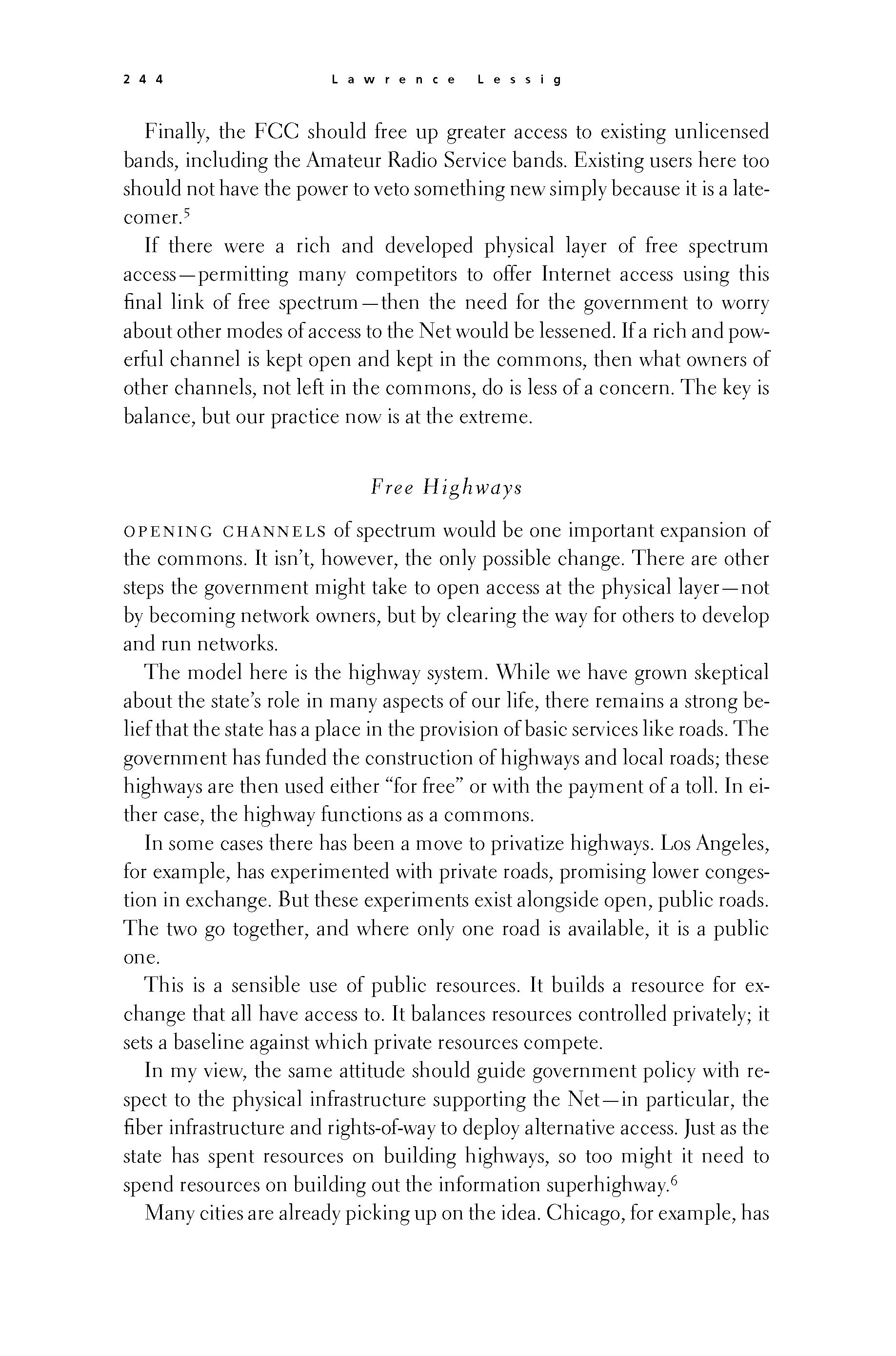 p243 _
-chap- _
toc-1 _
p244w _
toc-2 _
+chap+ _
p245
p243 _
-chap- _
toc-1 _
p244w _
toc-2 _
+chap+ _
p245
Finally, the FCC should free up greater access to existing unlicensed
bands, including the Amateur Radio Service bands. Existing users here too
should not have the power to veto something new simply because it is a late-
comer.[14-5]
If there were a rich and developed physical layer of free spectrum
access -- permitting many competitors to offer Internet access using this
final link of free spectrum -- then the need for the government to worry
about other modes of access to the Net would be lessened. If a rich and pow-
erful channel is kept open and kept in the commons, then what owners of
other channels, not left in the commons, do is less of a concern. The key is
balance, but our practice now is at the extreme.
/tab\/tab\_Free_Highways_/tab\/tab\
Opening channels of spectrum would be one important expansion of
the commons. It isn't, however, the only possible change. There are other
steps the government might take to open access at the physical layer -- not
by becoming network owners, but by clearing the way for others to develop
and run networks.
The model here is the highway system. While we have grown skeptical
about the state's role in many aspects of our life, there remains a strong be-
lief that the state has a place in the provision of basic services like roads. The
government has funded the construction of highways and local roads; these
highways are then used either "for free" or with the payment of a toll. In ei-
ther case, the highway functions as a commons.
In some cases there has been a move to privatize highways. Los Angeles,
for example, has experimented with private roads, promising lower conges-
tion in exchange. But these experiments exist alongside open, public roads.
The two go together, and where only one road is available, it is a public
one.
This is a sensible use of public resources. It builds a resource for ex-
change that all have access to. It balances resources controlled privately; it
sets a baseline against which private resources compete.
In my view, the same attitude should guide government policy with re-
spect to the physical infrastructure supporting the Net -- in particular, the
fiber infrastructure and rights-of-way to deploy alternative access. Just as the
state has spent resources on building highways, so too might it need to
spend resources on building out the information superhighway.[14-6]
Many cities are already picking up on the idea. Chicago, for example, has
[[244]]
p243 _
-chap- _
toc-1 _
p244w _
toc-2 _
+chap+ _
p245